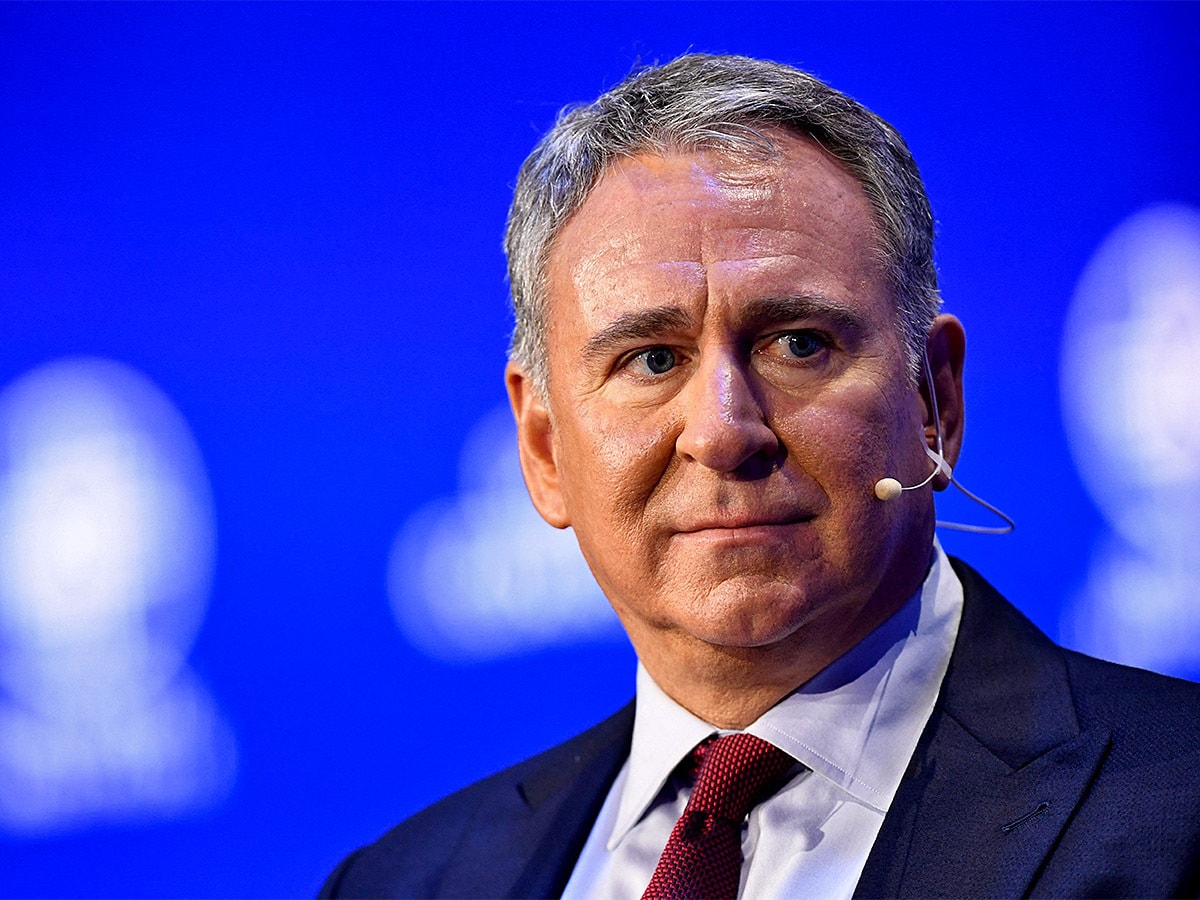Citadel’s CEO Ken Griffin entered the top 40 of Forbes’s rich list after his funds posted market-leading gains in the year through November. Meanwhile, a lawsuit was filed accusing Citadel of spoofing its market value.
- Citadel funds post market-beating gains during 2022
- However, biotech firm accuses market maker of “spoofing”
- Call and put options on SPDR S&P 500 ETF Trust key to success
Citadel CEO Ken Griffin (pictured above) has broken into the world’s top 40 richest people after a year of bumper returns for his hedge fund firm.
Citadel’s flagship Wellington fund generated returns of approximately 32% in the year through November, while its Global Fixed Income Fund gained 28.1%, Reuters reported earlier this month. Citadel Tactical Trading was up 22.4% and the Citadel Equities Fund gained 17.8%.
The gains are noteworthy given the struggles faced by other financial institutions during 2022. Hedge funds have lost an average of 4% this year as the fallout from Russia’s invasion of Ukraine has wreaked havoc in markets. The S&P 500 fell 14.4% in the year to 30 November, while the Nasdaq Composite fell 26.7%.
Griffin attributed his firm’s overperformance to the strength of the team of 10,000 employees working at Citadel and Citadel Securities. Griffin called them the best team “not only in our history – but also in the history of finance." He has reportedly rewarded staff by paying for them and their families to converge at Walt Disney World in Florida for three days, with private performances from Coldplay, Carly Rae Jepsen and DJ Diplo.
Call and Put Options
Timely buying and selling of S&P 500 trackers seems to have been a key pillar of Citadel’s gains this year.
Citadel more than doubled its holdings of put options – rights to sell at a certain price during a specified time period – on SPY during the third quarter (Q3), with more than 70 million shares added to make these Citadel’s largest holding at 11% of assets.
This followed a selloff of such options during Q2. By the end of Q3, a further 5.88% of Citadel’s holdings were call options – rights to buy at a certain price during a specified time period – on the SPDR S&P 500 ETF Trust [SPY].
In terms of individual stocks, Citadel bought 2.4 million Apple [AAPL] shares over the quarter, as well as 3.7 million in Microsoft [MSFT]. Apple and Microsoft compose 1.48% and 1.30% of the portfolio respectively.
Accusations of “Spoofing”
There are accusations, however, that Citadel has used illicit means to generate its market-beating returns.
Citadel Securities is among a number of Wall Street firms that Biotech company Northwest Biotherapeutics [NWBO] has accused of manipulating its share price via “spoofing,” the process of placing and then cancelling sell orders before their completion in order to drive down an asset’s price ahead of completing a buy order.
Citadel was the first of the firms, which also include Susquehanna and Canaccord Genuity, to deny Northwest Biotherapeutics’ accusations.
“This frivolous lawsuit appears to be nothing more than an attempt by Northwest Biotherapeutics to divert attention away from its long history of governance and management failures,” Citadel Securities remarked in a statement. Citadel outlined its intention to sue Northwest for bringing the allegations, “which only undermine the integrity of our capital markets.”
Laura Posner, a partner with the law firm representing Northwest, insisted the “hard data” would vindicate her client’s case, adding “It’s hard to dispute actual transactions and patterns.”
Funds in focus: SPDR S&P 500 ETF Trust
The SPDR S&P 500 ETF Trust tracks the price and yield performance of the S&P 500, and is therefore a reasonable barometer of the overall performance of the largest US equities.
Its five largest holdings as of 19 December are Apple, Microsoft, Amazon [AMZN], Berkshire Hathaway [BRK.B] and Alphabet [GOOGL], with weightings of 6.19%, 5.61%, 2.36%, 1.69% and 1.65%, respectively, corresponding to the rankings within the index itself.
The fund has fallen 18.7% year-to-date, reflecting the turmoil that has engulfed US equities this year. However, as above, its gains during Q4 indicate that Citadel’s strategy of acquiring the fund last quarter will have driven results.
Other ETFs in which Citadel holds options are the Invesco QQQ Trust [QQQ], which tracks the Nasdaq Composite, and the iShares Russell 2000 ETF [IWM] which tracks an index of small-cap stocks. QQQ has fallen 31.7% year-to-date, while IWM has fallen 21.6% over the same period.
Continue reading for FREE
- Includes free newsletter updates, unsubscribe anytime. Privacy policy





